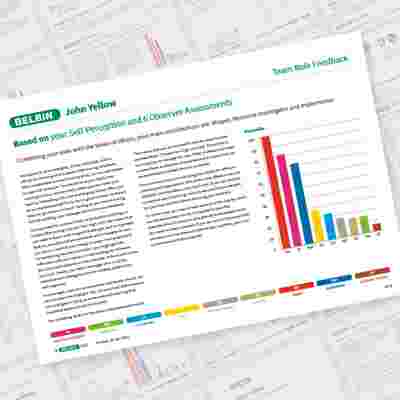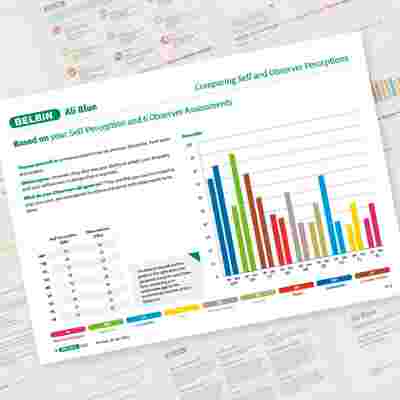A data-driven, people-centred framework
Belbin is a data-driven, people-centred framework for celebrating your strengths, discovering hidden talents and devising your personal development strategy.
Belbin enhances self-awareness by helping you to reflect on your own behaviours in different scenarios, and then inviting those you work with to provide observations of your contributions in the team.
The Belbin questionnaires are carefully composed to analyse your strengths, and to filter out social desirability and other influencing factors. When it comes to your others’ views of you, our algorithms ensure that feedback is discerning, balanced and constructive, and that one person is not allowed to influence your results unduly.
Your Belbin Individual report collates all this data, comparing your strengths according to your self-perception and to the contributions that others see.
This tailored report offers unique insights into your Team Role strengths, which can help you to clearly define your preferred working styles, better understand how others experience your behaviour, and create a personal development strategy to align the two.







